1.15pm
New College Antechapel
£2/£1 concessions
June
14 – Laura Coppinger, soprano
7 – Lucy Gibbs, mezzo-sopranoÂ
1.15pm
New College Antechapel
£2/£1 concessions
June
14 – Laura Coppinger, soprano
7 – Lucy Gibbs, mezzo-sopranoÂ
The Summer Opera
3 (Preview)/6/9/10/12/13 July 2019
Conductor – Steven Devine; Director – Michael Burden
In a new English translation by Simon Rees
Cast
Amarilli – Barbara Cole Walton
Dorida – Indyana Schneider
Eurilla – Gwendolen Martin
Mirtillo – Kate Semmens
Silvio – Mark Chambers
Trieno – Patrick Keefe
The Evening’s Events
6.00pm: Drink in the Cloisters
6.30pm: Opera Part I, The Warden’s Garden
Picnic Interval in the Cloisters (approximately 90 minutes)
9.00pm: Opera Part II, The Warden’s Garden
10.00pm: Curtain
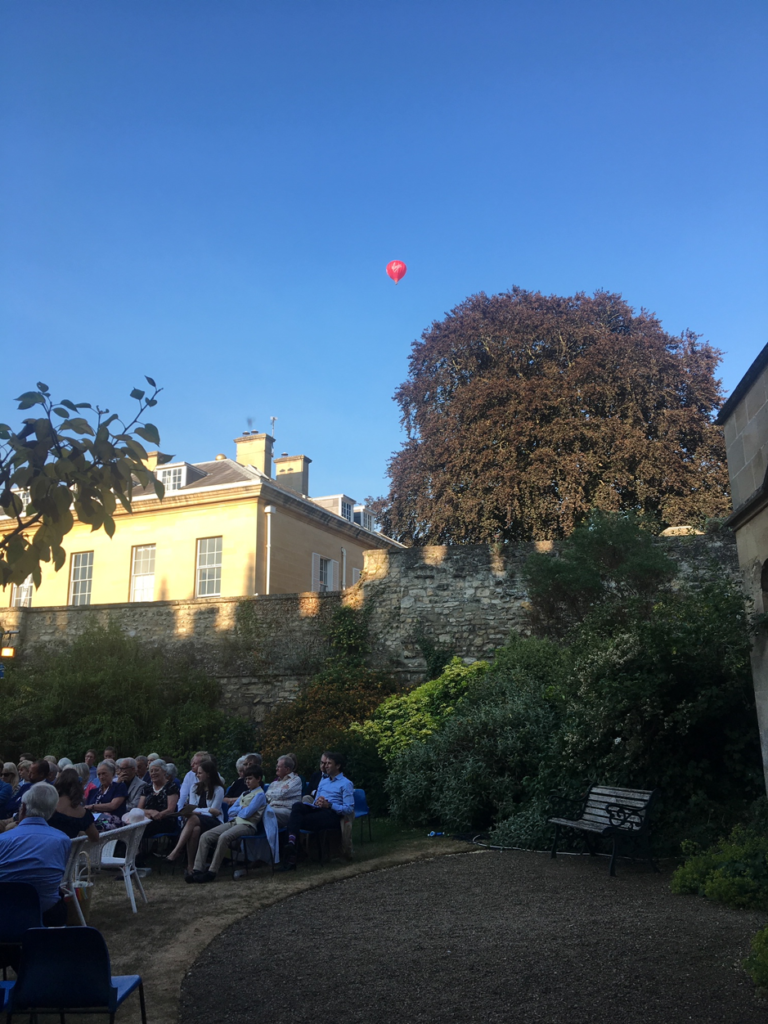
Wednesday 3 (Preview) & Tuesday 9
New Chamber Opera
Book online at http://www.ticketsource.co.uk/newchamberopera or download the booking form here.
Tickets are also available from the following organisations
Saturday 6 & Friday 12
Tickets: New College Development Office (01865) 279 337
Tuesday 9
Tickets: OXPIP (01865) 778 034
Wednesday 10
Tickets: Friends of the Oxford Botanic Garden: 07472 365001
Saturday 13
Tickets: Friends of WNO 01844 237551Mobile: 07813907466
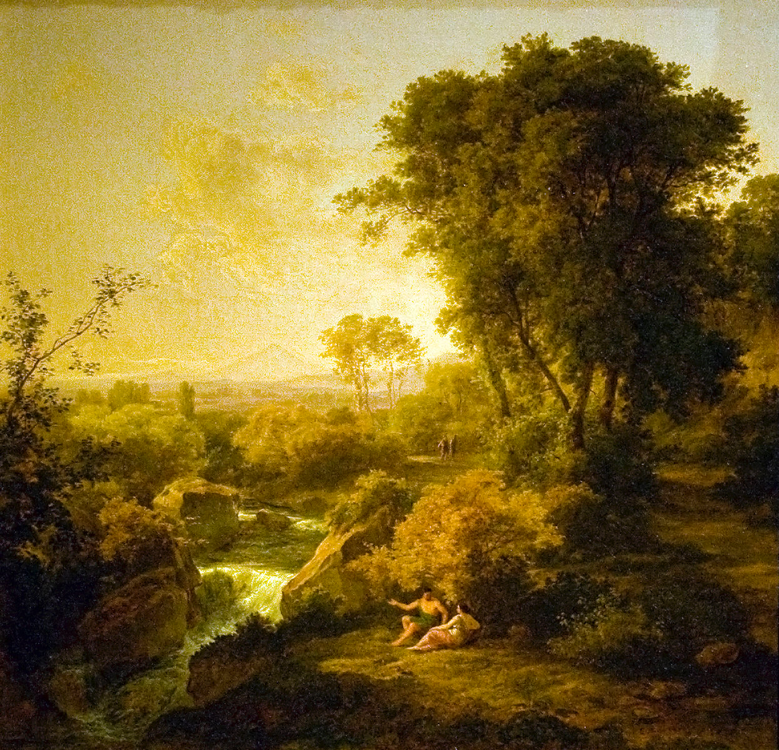
Amarilli, a shepherdess, in love with Mirtillo
Dorinda, a shepherdess, in love with Silvio
Eurilla, a shepherdess, in love with Mirtillo
Mirtillo, a shepherd, in love with Amarilli
Silvio, a hunter, in love with hunting, and eventually, with Dorinda
Tirenio, a High Priest of Diana
Set in Arcadia, the background to the plot of Handel’s pastoral opera Il pastor fido is that Diana, virgin huntress goddess, has become displeased with Arcadia and has let it be known that only through the marriage of a couple descended from heavenly ancestors, one of whom will be ‘a faithful shepherd,’ will her wrath be appeased; Silvio and Amarilli are designated the ‘happy couple,’ to everyone’s consternation. The three shepherdesses spend the opera pursuing the objects of their desire. Amarilli is in love with Mirtillo (who loves her in return) but is destined for Silvio. Eurilla is also in love with Mirtillo (who does not return her love), and tries to undermine Amarilli. Dorinda in is love with Silvio (who does not return her love until he almost kills her with a spear while hunting).
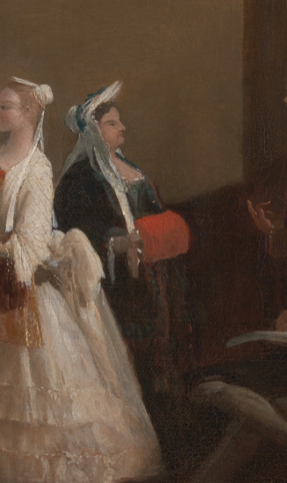
The opera was Handel’s second one for London; the first, Rinaldo, had been a brilliant success, and the audience was taken aback at this short and understated work. It achieved only a few performances, but it was twice revived in 1734 first with added choruses, and then with added dances, it was more popular, achieving a total of some 14 performances. The two versions represent two phases of Handel’s opera career; the first, his early years in the capital when both he and Italian opera were still finding their feet in the city, and the second, his years as an opera promoter, when he faced competition from the Opera of the Nobility, competition which ultimately damaged the staging of Italian opera in London. Il pastor fido has been performed in modern times on numerous occasions, with the 1734 version first performed in 1948 at Göttingen, and the 1712 version in 1971 in Unicorn Theatre, Abingdon.
Mozart: Exsultate Jubilate
Mozart: Mass in C Minor
12 June 2019, 8.00pm
New College Chapel
Tickets
http://www.ticketsource.co.uk/newchamberopera
or on the door
Conductor Joe Beesley
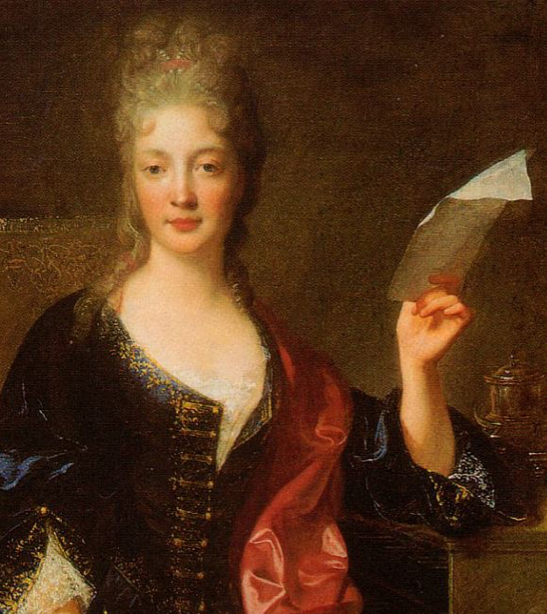
The two works of Mozart on the
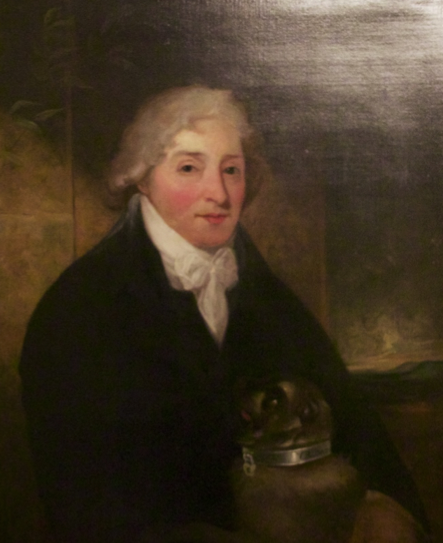
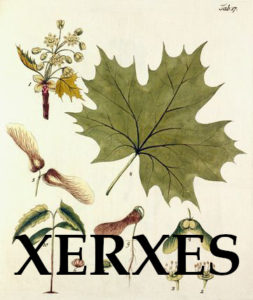
Handel
25 & 26 January 2019
8.00pm (the overture will be played at 7.45pm)
New College Ante-chapel
Tickets £15/£7 concessions
From https://www.ticketsource.co.uk/newchamberopera
Or on the door
Musical director – Anhad Arora
Repetiteur – Joseph Beesley
Director – Michael Burden
Xerxes – Stephanie Franklin
Arsamenes – Connor Devonish
Romilda – Emily Gibson
Atalanta – Georgie Malcolm
Amastris –
Ariodates – Chris Murphy
Elviro – Filippo Turkheimer
Handel’s comic piece Xerxes of 1738 was one of his last operas; it was also one of his least successful. The audience didn’t understand his operatic jokes and didn’t see the funny side of it; even though four of the characters start with ‘A’. Charles Burney later commented: “I have not been able to discover the author of the words of this drama: but it is one of the worst Handel ever set to Music: for besides feeble writing, there is a mixture of tragic-comedy and buffoonery in it.” The buffoonery includes a collapsing bridge, a warring (potential) couple, a foolish general, a servant disguised as a flower seller, and a monarch in love with a plane tree. We can promise you all this, and much more!
New College Ante-chapel
1.15pm, £2/£1 concessions
November
9 Filippo Turkheimer – Bass
16 Lewis Hammond – Countertenor
22 Emily Gibson Brown – Soprano
29 Lucy Gibbs – Alto
A masterclass with Jonathon Swinard
8 November
New College Ante-chapel
2.00-4.00pm
This event is free, but is ticketed; please book here:
https://www.ticketsource.co.uk/newchamberopera
Masterclass participants: Alexander Gebhard, Emily Gibson, Patrick Keefe, and Indyana Schneider
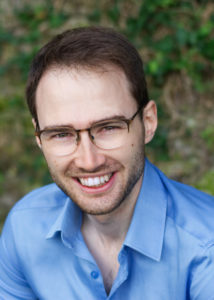 Conductor and pianist Jonathon Swinard is the Head of Music at Garsington Opera and the Artistic Director of the Scottish Opera Young Company. He studied at St Catherine’s College, Oxford, where he held the NCO Répétiteur Scholarship, and the Guildhall School of Music and Drama. He began his career at Scottish Opera as the company’s first Emerging Artist Répétiteur and also held the Alexander Gibson Choral Conducting Fellowship with the Royal Scottish National Orchestra Chorus. From 2014 to 2016 he was Solorepetitor and Kapellmeister at the Staatstheater in Nuremberg where he conducted opera, ballet, and musical theatre. In 2016 he returned to Scottish Opera as Chorus Master and Répétiteur. He studied conducting with Sian Edwards at Dartington and is the Musical Director of the Helensburgh Oratorio Choir.
Conductor and pianist Jonathon Swinard is the Head of Music at Garsington Opera and the Artistic Director of the Scottish Opera Young Company. He studied at St Catherine’s College, Oxford, where he held the NCO Répétiteur Scholarship, and the Guildhall School of Music and Drama. He began his career at Scottish Opera as the company’s first Emerging Artist Répétiteur and also held the Alexander Gibson Choral Conducting Fellowship with the Royal Scottish National Orchestra Chorus. From 2014 to 2016 he was Solorepetitor and Kapellmeister at the Staatstheater in Nuremberg where he conducted opera, ballet, and musical theatre. In 2016 he returned to Scottish Opera as Chorus Master and Répétiteur. He studied conducting with Sian Edwards at Dartington and is the Musical Director of the Helensburgh Oratorio Choir.
Jonathon is a long-standing member of Faculty for both the Georg Solti Accademia di Bel Canto and Lyric Opera Studio Weimar and is a visiting vocal coach at the Royal Conservatoire of Scotland, Royal Academy of Music, and Guildhall School of Music and Drama. He is passionate about the training of young voices and is the Artistic Director of the Alvarez Young Artists’ Programme at Garsington Opera.
Haydn
18 & 19 November 2018
8.30pm
New College Ante-chapel
Tickets: £12/£6 concessions
From https://www.ticketsource.co.uk/newchamberopera
Or on the door
Musical Director – Anhad Arora
Répétiteur – Joseph Beesley
Director – Michael Burden
Sempronio, an old apothecary – Maximilian Lawrie
Grilletta, Sempronio’s ward – Emily Gibson
Mengone, Sempronio’s apprentice – Jacob Clark
Volpino, a young rich dandy – Indyana Schneider
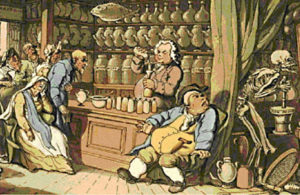
Haydn’s short comic opera The Apothecary – described as ‘a comedy of great warmth and ebullience’ – was written for performance at Estahazy in 1768. The libretto is by the creator and master of the comic opera libretto, Carlo Goldoni. The story is a love tangle, in which the old Apothecary is in love with his ward Grilletta – but as also is the poor apprentice Mengone, and the rich and assured dandy Volpino. The action twists and turns encompassing a marriage contract, a map of Turkey, and the appearance of Volpino disguised as a Pasha.
New College Ante-chapel
1.15pm, £2/£1 concessions
May
4 Lewis Hammond, Countertenor
11 Sophie Smout, Soprano
25 Helena Gavrilov, Soprano
June
1 John Lee, Bass
8 Sofia Kirwan-Baez, Soprano
15 Isabella Pitman, Soprano
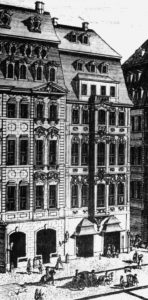
J S Bach
The Summer Oratorio
Anhad Arora – Director
Emily Gibson – Soprano
Will Anderson – Tenor
John Lee – Bass
New College Ante-chapel
8.00pm, 6 June 2018
£10/£5 concessions
Book at:Â https://www.ticketsource.co.uk/newchamberopera
The Coffee and Peasant cantatas by J.S. Bach reveal a wordly – even parodic — side to a composer often associated with cerebral themes. The Coffee Cantata, written for a performance in Zimmerman’s newly founded Kaffeehaus, is a satirical exploration of a pernicious addiction to coffee. The black concoction, after its introduction into the Western world at the end of the 17th century, was worshipped by some – perhaps because of the drink’s putative status as an aphrodisiac – and reviled by others. Bach’s cantata on the subject is ferociously witty; it includes, amongst other numbers, a veritable love song to the delectable liquid: ‘Ei! Wie schmeckt der Kaffee süsse’ . The Peasant Cantata, no less profane in theme, can be described as a comic dialogue in music. The text, written in a dialect peculiar to Upper Saxony, describes, with close attention to all matters financial, the banal existence of two peasants, an unnamed farmer and his wife, Mieke. With 24 movements, it is one of Bach’s most elaborately structured cantatas; with only 2 singers and 3 permanent instrumentalists, it is also one of his most economically scored.
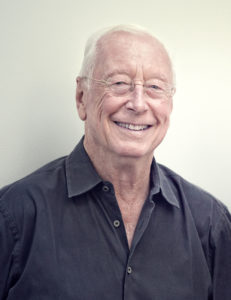
Event 1
21 June 2018
Edward Boyle Auditorium, St Hilda’s College
2.30pm
William Christie, Rameau and
Staging Baroque Opera
2.30pm Lecture- James Halliday
3.30pm Tea
4.00pm Round Table discussion
James Halliday, with William Christie, Claire Holden, Jonathan Williams, Jonathan Patterson
5.30pm Drinks Reception
Event 2
22 June 2018
Mary Ogilvie Lecture Theatre, St Anne’s College
11.30am-12.30pm
William Christie in Conversation with
Edward Higginbottom
This event will take place in the programme of the Oxford Conducting Institute’s International Conducting Studies Conference 2018.
William Christie
William Christie, harpsichordist, conductor, musicologist, and teacher, is the inspiration behind one of the most exciting musical adventures of the last 30 years. A pioneer in the rediscovery of Baroque music, he has introduced the repertoire of 17th- and 18th-century France to a very wide audience across the globe. Born in Buffalo, and educated at Harvard and Yale, William Christie has lived in France since 1971. The turning point in his career came in 1979, when he founded Les Arts Florissants. Major public recognition came in 1987 with the production of Lully’s Atys at the Opéra Comique in Paris. From Charpentier to Rameau, through Couperin, Mondonville, William Christie is the uncontested master of tragédie-lyrique as well as opéra-ballet. But his affection for French music does not preclude him from exploring other European repertoires as Monteverdi, Rossi, Scarlatti, Landi, Purcell, Handel, Mozart, Haydn ou Bach.
Notable among his most recent operatic work are Campra’s Les Fêtes vénitiennes in 2015 at Paris’s Opéra Comique and then at the Brooklyn Academy of Music; Rameau, Maître à Danser created at Caen Theater in 2014; Theodora in 2016 at the Théâtre des Champs-Elysées and, in 2018, Handel’s Jephtha at the Opéra de Paris and Ariodante at the Wiener Staatsoper. As a guest conductor, William Christie often appears at opera festivals such as Glyndebourne (Giulio Cesare in 2018) or at opera houses such as the Metropolitan Opera of New York, the Zurich Opernhaus, or the Opéra National de Lyon. His extensive discography includes more than 100 recordings. His most recent recordings in “Les Arts Florissants†collection at Harmonia mundi: La Harpe Reine, Un jardin à l’italienne, Bien que l’amour and B Minor Mass (release in Spring 2018). Wishing to develop further his work as a teacher, in 2002 William Christie created, with Les Arts Florissants, a biennial Academy for young singers, Le Jardin des Voix, Now established at Thiré in Vendée, where he lives. Since 2007 he has been artist in residence at the Juilliard School in New York, where he gives master classes twice a year accompanied by the musicians of Les Arts Florissants. In 2012, he launched the festival Dans les Jardins de William Christie in his own gardens, where he welcomes every summer young musicians from the Juilliard School along with the musicians of Les Arts Florissants.
In November 2008, William Christie was elected to France’s Académie des Beaux-Arts, and gave his official inaugural speech under the dome of the Institut de France in January 2010. In 2018 he was named world ambassador for French culture by Le Bureau Export, in the presence of French culture minister Françoise Nyssen.